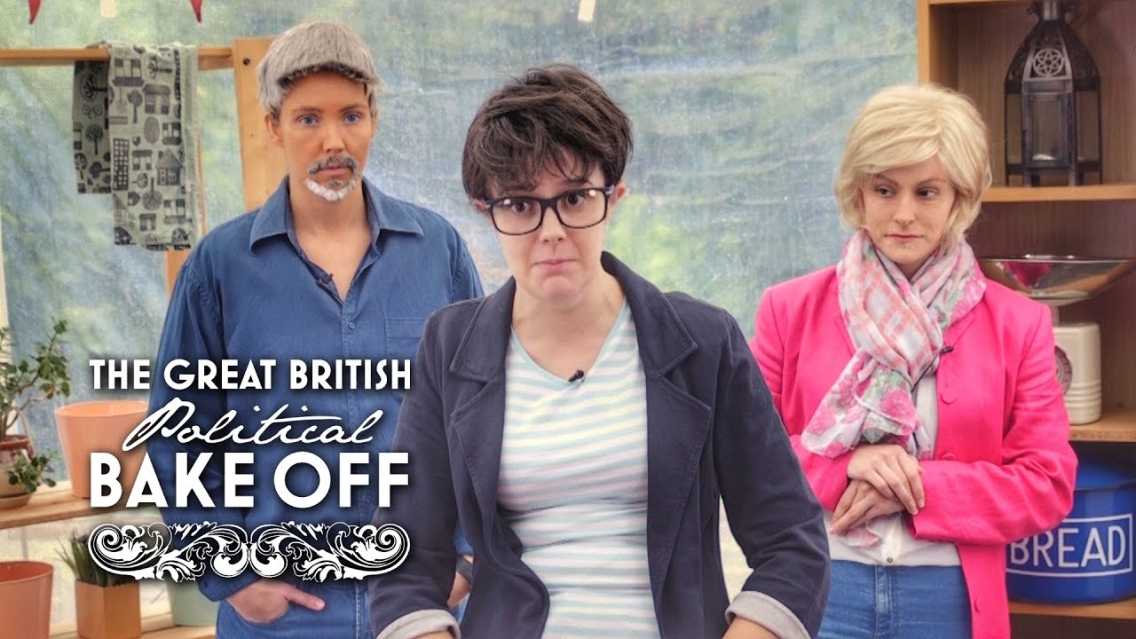The Brexit Upset: Why Was the U.K. Vote a Surprise?
MIDDLEBURY, Vt. – On a recent Tuesday during lunchtime, Professor of Economics Peter Matthews glanced quickly around the conference room in the Robert A. Jones House looking for a raised hand among the more than 45 students there.
Matthews had just begun moderating a discussion, “Polls, Proles, Toffs, and Trots: A Mediated Conversation about the Brexit Vote,” part of the Rohatyn Center’s “Hot Topics” Lunch and Discussion series just for students. He started by playing a short BBC News clip of a voter in England surprised and dismayed by the June 23, 2016, referendum’s result the previous day. “Adam from Manchester,” as the man became known on social media, had voted for Brexit despite his desire for the U.K. to remain in the European Union. Adam told a reporter, “I didn’t think my vote was going to matter too much because I thought we were just going to remain.”
According to Matthews, until the night before the vote, all the polls had predicted that the U.K. would continue to be a member of the EU. “What,” he said, “did this voter and the failure of the polls say about Brexit, polling, and elections?”
After a moment of silence, students quickly began to contribute their thoughts as they finished the lunch that was available before the event. One suggested that voters with less education were more likely to have voted for Brexit. Another pointed out that the most Googled search term in the U.K. the day before the referendum had been “European Union,” implying that a number of voters weren’t necessarily informed about the issues involved.
Matthews kept the discussion moving at a fast pace, making comments, calling on students, and coming back repeatedly to his central question: Why didn’t the polls accurately predict defeat for the “remain campaign”? After all, he said, Brexit had won by more than 1.5 million votes. A student who said he had studied at the London School of Economics commented that many people he knew in England cited age as a deciding factor of voter outcome; older voters had tended to vote for Brexit. Matthews added that younger voters generally turn out in small numbers.
Then Matthews suggested that “expressive voting” had played a role in the outcome. “Expressive voting,” he said, “is the idea that sometimes we can express preferences or cast votes for their own sake, independent of the facts or consequences.” Matthews pointed out that even on questions based on numerical data, such as unemployment figures during the Obama administration, Republicans and Democrats differ, with Republicans saying they were higher and Democrats saying they were lower than they actually were. Regarding Brexit, Matthews argued that the polls probably had it right. “This was not a problem of mistaken polling. This was a problem of expressive voting at the moment of the election,” he said. “The question was, what were they expressing?”
Matthews next turned to the topic of who voted for Brexit. One student suggested that rural voters wanted to leave the EU. That was only true in part, due to the large size of the greater London area, said Matthews. A student stated that in minor cities where property had depreciated in value, voters had supported Brexit. Actually, Matthews said, according to surveys, most homeowners had voted to remain. One student commented that the unemployed had largely voted for Brexit and Matthews agreed.
He then encouraged the students to suggest why Brexit had won. Matthews noted that there was evidence that immigration had a small negative effect on the employment of the lowest-skilled workers and a slightly positive effect on those with the highest skills. In general, low-skilled workers had supported Brexit.
To wrap up, Matthews shared some humorous footage from a
The Great British Bake Off that depicted a mock baking competition between British political figures, including Prime Minister Theresa May, Labor leader Jeremy Corbin, and former mayor of London Boris Johnson.
As the students left, with many headed off to class, Charlotte Tate, associate director of the Rohatyn Center for Global Affairs, observed that the “Hot Topics” lunch events are popular with students. “I’ve had to turn down staff and faculty who’ve asked if they can come since this event is really for the students,” said Tate. “It’s an opportunity for them to spend their lunch talking about an important global issue that’s in the news.”
Reporting by Sarah Ray


